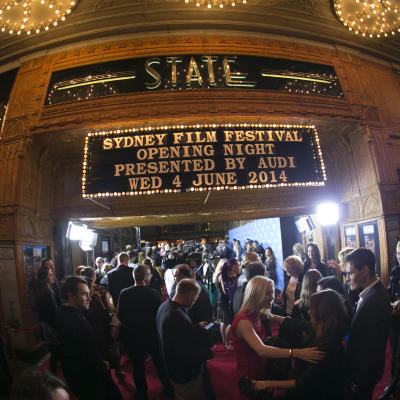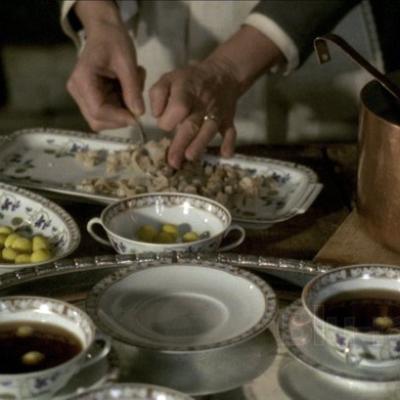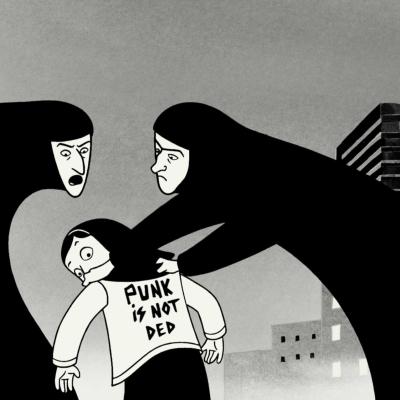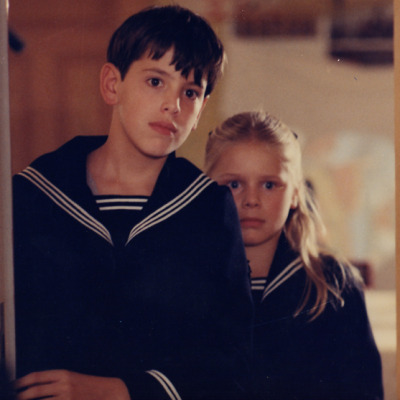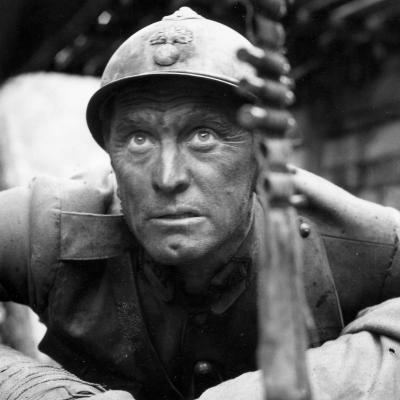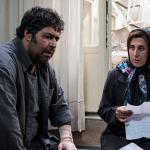Iranian cinema has experienced a kind of renaissance from the late 1980’s onwards, and particularly in the 21st Century. The films coming out of Iran give a valuable insight into a world that is often completely unknown to Western audiences, allowing us to learn about Islamic societies, the role of feminism in the Middle East, and life in such a strict and traditional environment.
In this year’s Sydney Film Festival, there are two Iranian movies included in the Official Competition. Fearless Iranian director Jafar Panahi presents his third film made in secret since he was banned from filmmaking by the Iranian government, the funny and insightful documentary Tehran Taxi, and one of Iran’s best female filmmakers, Rakhshan Bani-Etemad, presents a similarly subversive and surreptitiously made portrait of life in Tehran in Tales.
Here are five films that exemplify what is so incredible about the cinema coming out of Iran, and why it is so thoroughly appreciated all around the world.
Close-Up (1990)
Abbas Kiarostami has made many acclaimed films and has earned his spot as the most recognised Iranian filmmaker of all time, but none of his incredible works are as strikingly original and beautifully constructed as his 1990 film Close-Up. A sort of docudrama, the film recreates the real-life story of a man, Ali Sabzian, who claimed to be the filmmaker Mohsen Makhmalbaf and duped a family into thinking that he wanted to use their home as a film set with their son in a major role. His story comes undone and the family takes him to court, where Abbas Kiarostami was with his camera in hand. He recreated the events leading up to the trial and the trial itself, giving this highly reflexive film both a happy ending and the more downbeat, real ending. Close-Up is the first real, fully formed sign of the unbelievable creative power and mature modes of filmmaking that would characterise Iranian cinema in the decades that followed.
A Moment of Innocence (1996)
Watching Mohsen Makhmalbaf’s A Moment of Innocence is like unfolding a particularly complex piece of origami, or untying a rather difficult knot. The movie folds back on itself and loops around, telling a story that is surprisingly fun and humorous, but also thought-provoking and full of social commentary. The semi-autobiographical film references when a teenage Makhmalbaf stabbed a policeman at a protest rally and was subsequently jailed and follows the director’s attempts to dramatise the event with the actual policeman reprising his real-life role. Things get complicated when the involved parties disagree on what actually occurred, leading to a Rashomon-like exploration of storytelling and differing points-of-view. The film ends with one of cinema’s greatest freeze frames, capping off this triumphant cinema experiment and cementing its place among Iran’s finest films.
The Circle (2000)
One of Jafar Panahi’s biggest international successes, The Circle is an episodic, often heart-wrenchingly bleak account of the many plights faced by women in Iran. The camera prowls through the streets, following various women who are forced to desperate measures to survive. A grandmother is distraught to find that her daughter is to give birth to a girl when she was promised a boy; escaped prisoners Nargess and Arezou attempt to leave the city for a distant rural paradise; a woman attempts to abandon a child that she cannot care for; and a young woman named Pari attempts to abort a child whose father has been executed. This film - like many on this list - was banned in Iran because of the truths that it reveals about how women are treated on an institutional level. The Circle is an urgent and vital film that will haunt you long after the credits fade.
A Separation (2011)
Asghar Farhadi’s domestic drama won the Academy Award for Best Foreign Language Film and with good reason. The film’s story encircles married couple and parents Simin and Nader who are seeking a divorce because Simin wants to leave the country, and Nader feels that he must stay to care for his father who suffers from severe Alzheimers. The film is extremely diplomatic in the way it represents every character; Nader has a temper, but he is also extremely loyal and caring, and Simin is a bold, strong and intelligent woman. Some nastiness occurs after a woman who had been hired to care for Nader’s father while he works has a miscarriage, but slowly things reveal themselves to be a mess of contradicting motives and desires. A Separation offers no easy answers in the end, but there is no greater portrait of what life is like entangled in the web of the strict and bureaucratic nation.
A Girl Walks Home Alone at Night (2014)
This art-house hit - filmed in the United States but spoken entirely in Farsi and directed by Iranian-American director Ana Lily Amirpour - is part western, part vampire film and all masterpiece. Set in an allegorical Bad City (that’s what the setting is called) in Iran, the film draws on Sergio Leone’s enigmatic Spaghetti Westerns and ties it to the darkness of the popular vampire mythos and the classic archetypes of film noir, binding up the extraordinary package with an examination of the role of femininity in a man’s world that is so characteristic of a lot of Iranian cinema. The surreal, black-and-white ghost town imagery proves that the new wave of Iranian cinema is not all harsh realism, and also proves that it is possible for cinema to transcend cultural boundaries while still representing its origins in a powerful and stunning way.
Check out the Related Events below to see when you’ll be able to see some top quality Iranian films on the big screen right here in Sydney.
